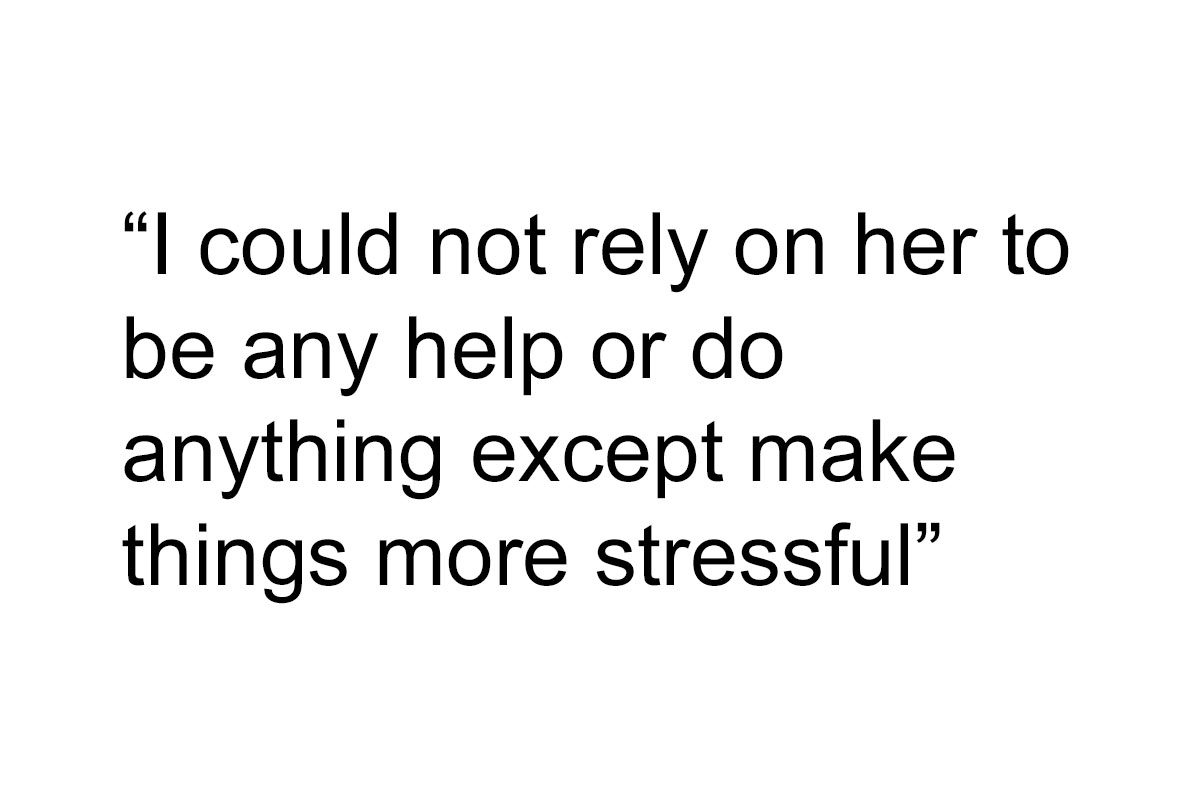
“She Has The Survival Instinct Of A Panda Raised In Captivity”: Guy Reprimands Fiancée After She Panics In A Dangerous Situation
We all respond to dangerous situations differently. Your body might instinctively go into fight, flight, freeze, or any combination of these responses. But can we control how our bodies react to trauma and stress? This question has recently caused a bit of drama in the life of a man and his fiancé. After going on a boating trip that quickly became dangerous, he was unamused by how his partner reacted, so he reached out online to get some outside opinions on his behavior. Below, you’ll find the full story, as well as conversations we were lucky enough to have with Dr. Lee H. Baucom and Dr. Kathy McMahon.
Everyone responds in their own way when confronted with a dangerous situation
Image credits: Liza Summer (not the actual image)
But after seeing how upset his fiancé became during a boating trip, this man began wondering if her emotions might be a hindrance to their relationship
Image credits: Artem Verbo (not the actual image)
Image credits: RODNAE Productions (not the actual image)
Later, the man provided additional details clarifying why the women were not expected to help
Image credits: architectureHater
“It is important information to see how someone responds across a number of situations, as a part of really getting to know them”
To gain more insight on this situation, we reached out to marriage therapist Dr. Lee H. Baucom, who was kind enough to have a chat with Bored Panda. First, we wanted to know if it’s important for couples to experience frightening situations with one another before agreeing to spend their lives together, but Dr. Baucom noted that it can be tough to orchestrate something like that. “How dangerous a situation do you create or await?” he asked. “I do think it is important information to see how someone responds across a number of situations, as a part of really getting to know them,” he noted. “How do they respond to good times? Bad times? Crises? Challenges? When you see how someone responds, you get to know them better.”
We were also fortunate enough to speak with psychologist and president of Couples Therapy Inc., Dr. Kathy McMahon, to hear another expert’s thoughts on this story. First, she noted that, “No one here wins the ‘most eligible partner’ award. Not by a long shot.” She explained that the woman likely has an anxiety issue, as well as “an offensive bad habit of looking for scapegoats when she finds herself in undesirable tough spots.” But her fiancé isn’t innocent either, as he could have prioritized her safety and wellbeing and offered her reassurances to help calm her down. “Someone as loud and distressed as his fiancé will deplete anyone’s concentration,” Dr. McMahon noted, pointing out that spending a few minutes devoting his time to her could have paid off with big benefits. She went on to address the lack of empathy the man seemed to have for his fiancé, as one of his primary concerns was how embarrassed he was in front of “his boys”.
However, just because we’ve seen someone’s reaction once doesn’t mean we can necessarily predict how they will respond in the future. “For instance, how people respond as individuals is different from how they respond as a part of a couple, which is different from how they would respond as a parent, as an older person, and so on,” Dr. Baucom added.
Image credits: Ketut Subiyanto (not the actual image)
“Few people know how they’ll react when they truly believe they are about to die”
Dr. McMahon says it can be impossible to predict exactly how we’ll respond when we feel that our lives are in danger. “Some of us jump into action (when we know what to do, like OP and his boys). Some of us freeze. Some of us go catatonic. And some act like his fiancé and have a total meltdown. It is a limbic response. Pretty primitive and not under conscious control,” she explained. “The question for all of us is: If someone really believes they are about to die, as she did, do we want to imagine our heroic fiancé reassuring us and then plunging back into the action to do all that is needed once he realizes we’re getting the reassurance we need? Or do we want to imagine the eye-rolls and looks of disgust on his face as the boat capsizes and we drown?”
We also were curious if it can be an issue when couples respond drastically differently from one another in tough situations. “It can be a problem when it becomes a point of blame or disrespect,” Dr. Baucom says. He explained that in this situation, the man responded with a fight instinct, fighting to get the water out of the boat and under control, while his partner went with a freeze response. But all three responses (fight, flight, and freeze) could be helpful or harmful in any given situation. “What is more important is recognizing that, under crisis, everyone really does the best they can. Supporting a partner is more important than assigning blame,” he told Bored Panda.
Dr. Baucom went on to note that “training and experience” can be helpful in terms of responding to crisis situations. “The question for a couple is: Can they join together, as a team, to make it through tough times? Can they assume the other is doing their best? Can they accept that one day, they may be the one who responds less optimally?” And while anything can ultimately be a dealbreaker in a relationship, the ways in which we respond to stressful situations certainly doesn’t have to be. Dr. Baucom recommends taking some time to calm down and collect your thoughts, rather than engaging in a conversation while you and your partner are emotionally charged. “Sometimes, stepping back is important. Sometimes, jumping in is important. And while it would be tough on a boat, sometimes, getting away is important,” he noted.
“If I found myself too busy to hug and reassure my panicked fiancée, I would be better off being the one apologizing to her on the way home,” Dr. McMahon said. “I would talk about my hyperfocus on keeping us alive at the cost of reassuring her. I would tell her that I let her down by not being there for her. Then I would want to know what terrified her most in that entire situation. I’d talk to her about whether this was connected to something earlier in her life and how it hurt me that she was blaming me for the situation in her terror.”
Image credits: cottonbro studio (not the actual image)
“Couples who make it through tough times do so, not because they react the same, but because they support each other in those tough times”
Dr. McMahon went on to note that the woman might have had a lot of trauma in her life or might be unable to swim. “Or she once almost drowned. It’s pretty common for those with childhood developmental trauma to be poor observers of danger,” she explained. “They often have problems protecting themselves by thinking ahead about possible dangerous situations. Meltdowns are also seen often.”
“Perhaps OP isn’t ready to commit to someone who needs the care and attention his fiancé does. But everyone needs a little attention sometimes when we’re scared, panicked, overwhelmed or just plain exhausted. Empathy is a trait everyone can cultivate if marriage is a goal,” she noted. “Thank goodness, all returned home safely. But he would be wise to ask himself if he has the interest and needed love for this human being. He will have to agree to care about her in sickness, terror, grief, and in health, and you can’t strike some of those out because they are ‘embarrassing’.”
“Couples who make it through tough times do so, not because they react the same, but because they support each other in those tough times,” Dr. Baucom shared. “We all do the best we can in a situation. We might do better next time, given a chance to reflect. But that generally happens only when it feels supportive. Couples who thrive work on being supportive of each other, in good or bad times.” We would love to hear your thoughts on this topic in the comments below, pandas. Then, if you’re interested in checking out another Bored Panda article discussing relationship drama, look no further than right here!
Image credits: Priscilla Du Preez (not the actual image)
Some readers assured the man that he had every right to be upset
While others pointed out that he could have been more considerate of his fiancé’s feelings
I honestly struggle a lot with people like this. I understand they are scared, as usually everyone in the situation is, but acting this can put people in more danger. When people trying to survive and save others in stressful situations having this distraction can be the difference of making it or not. There is a reason why first responders and emergency personal will have people like this removed from the scene, they are a distraction. Sorry, but when your reaction the a dangerous situation puts everyone in danger,maybe you should figure out a way to handle things better
yes yes they will for instance if Mr.guns decided to come to my classroom the girl shrieking about how we're all gonna die would have alerted him very much
Load More Replies...I can‘t get over the „She has no sense of danger around her, doesn‘t constantly examine her surroundings for things that could be dangerous“. Yes she was hysterical and annoying, but he comes off as a jerk. What does he think where he is? Did he grow up in a jungle or what? Who does that? Maybe I can‘t relate though. Do you really need to be constantly on your guard over there? That sounds SO exhausting!
They both suck. Most humans instinctively keep an eye out for possible danger. We don't think consciously about it; it's an evolutionary imperative for survival. He's arrogant and possibly paranoid because he seems to think he's special for doing what most humans have done since humanity began. Unless you're in the wilderness or a war zone, it's not necessary to be thinking about danger all the time; just go about life and be responsible (follow safety rules, etc.). For most humans, natural instinct kicks in when needed. Survival instincts also include staying still and quiet during a dangerous situation someone else is fixing. She lacks them either because she doesn't care about others (narcissism, sociopathy, etc.) or due to trauma or anxiety. Going hysterical puts yourself and others at risk, the opposite of survival. If you lack natural survival instincts, the responsible thing is to consciously learn the skills. She's irresponsible.
Load More Replies...Mixed feelings on this one. I have anxiety issues so I absolutely understand her fear and I don't think I would be any help in that kind of emergency either. But wailing about how it was all his fault and that they were going to die was over the top. Regardless of how much fear I might feel in that situation, I think I would still understand that the best chance of survival would be to keep quiet and let the people who know how to deal with this do just that. I honestly don't think it was unreasonable for him to expect her to have some control. Aside from that, anyone who gets on a boat has to be mentally prepared that there is a possibility that something will go wrong.
I agree. I have strong hereditary GAD (generalised anxiety disorder), so even non threatening situations could be a 'trigger'. It's on me to manage: I've done and do therapy through my country's free medicalcare (luckily), and used a medication to correct the hereditary imbalance. Even so, an unexpected challenge is hard. I'm scared of boats too. HOWEVER, I know all this before I board a boat or enter a potential danger. If I were to go in a boat/helicopter I would warn staff/those in charge "I have anxiety, I will stay calm and still and do as told, if I occasionally scream I'm very sorry, tell me to shut up". I only know to say this etc through self management. It was hard but imo anyway its mine to manage not impose it upon others.
Load More Replies...I honestly struggle a lot with people like this. I understand they are scared, as usually everyone in the situation is, but acting this can put people in more danger. When people trying to survive and save others in stressful situations having this distraction can be the difference of making it or not. There is a reason why first responders and emergency personal will have people like this removed from the scene, they are a distraction. Sorry, but when your reaction the a dangerous situation puts everyone in danger,maybe you should figure out a way to handle things better
yes yes they will for instance if Mr.guns decided to come to my classroom the girl shrieking about how we're all gonna die would have alerted him very much
Load More Replies...I can‘t get over the „She has no sense of danger around her, doesn‘t constantly examine her surroundings for things that could be dangerous“. Yes she was hysterical and annoying, but he comes off as a jerk. What does he think where he is? Did he grow up in a jungle or what? Who does that? Maybe I can‘t relate though. Do you really need to be constantly on your guard over there? That sounds SO exhausting!
They both suck. Most humans instinctively keep an eye out for possible danger. We don't think consciously about it; it's an evolutionary imperative for survival. He's arrogant and possibly paranoid because he seems to think he's special for doing what most humans have done since humanity began. Unless you're in the wilderness or a war zone, it's not necessary to be thinking about danger all the time; just go about life and be responsible (follow safety rules, etc.). For most humans, natural instinct kicks in when needed. Survival instincts also include staying still and quiet during a dangerous situation someone else is fixing. She lacks them either because she doesn't care about others (narcissism, sociopathy, etc.) or due to trauma or anxiety. Going hysterical puts yourself and others at risk, the opposite of survival. If you lack natural survival instincts, the responsible thing is to consciously learn the skills. She's irresponsible.
Load More Replies...Mixed feelings on this one. I have anxiety issues so I absolutely understand her fear and I don't think I would be any help in that kind of emergency either. But wailing about how it was all his fault and that they were going to die was over the top. Regardless of how much fear I might feel in that situation, I think I would still understand that the best chance of survival would be to keep quiet and let the people who know how to deal with this do just that. I honestly don't think it was unreasonable for him to expect her to have some control. Aside from that, anyone who gets on a boat has to be mentally prepared that there is a possibility that something will go wrong.
I agree. I have strong hereditary GAD (generalised anxiety disorder), so even non threatening situations could be a 'trigger'. It's on me to manage: I've done and do therapy through my country's free medicalcare (luckily), and used a medication to correct the hereditary imbalance. Even so, an unexpected challenge is hard. I'm scared of boats too. HOWEVER, I know all this before I board a boat or enter a potential danger. If I were to go in a boat/helicopter I would warn staff/those in charge "I have anxiety, I will stay calm and still and do as told, if I occasionally scream I'm very sorry, tell me to shut up". I only know to say this etc through self management. It was hard but imo anyway its mine to manage not impose it upon others.
Load More Replies...
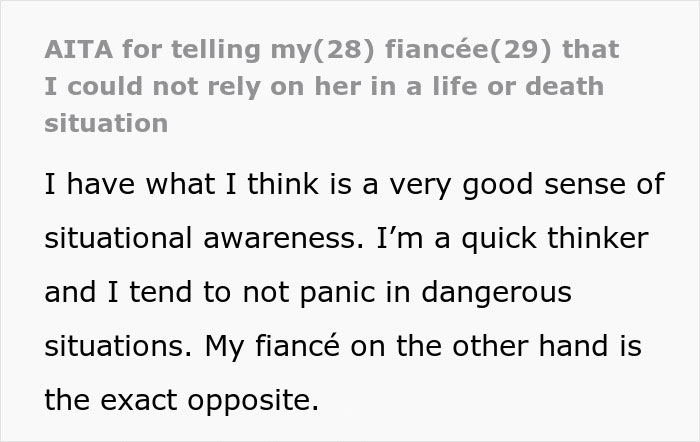
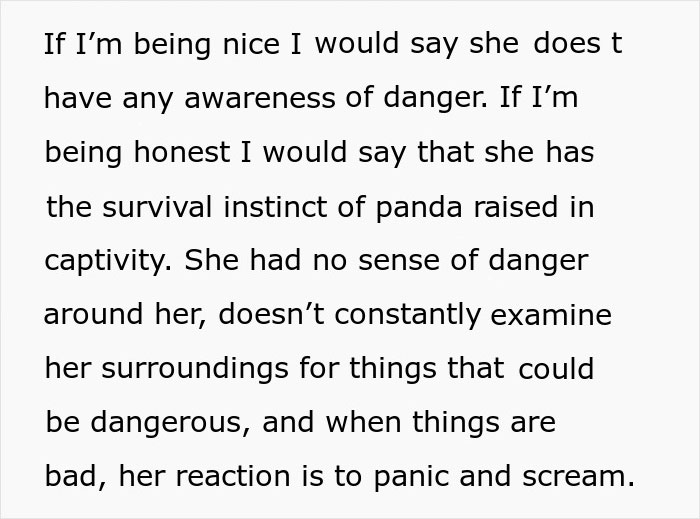
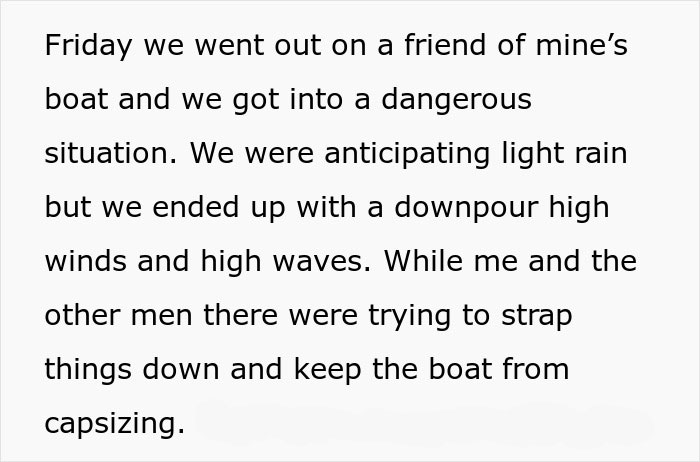

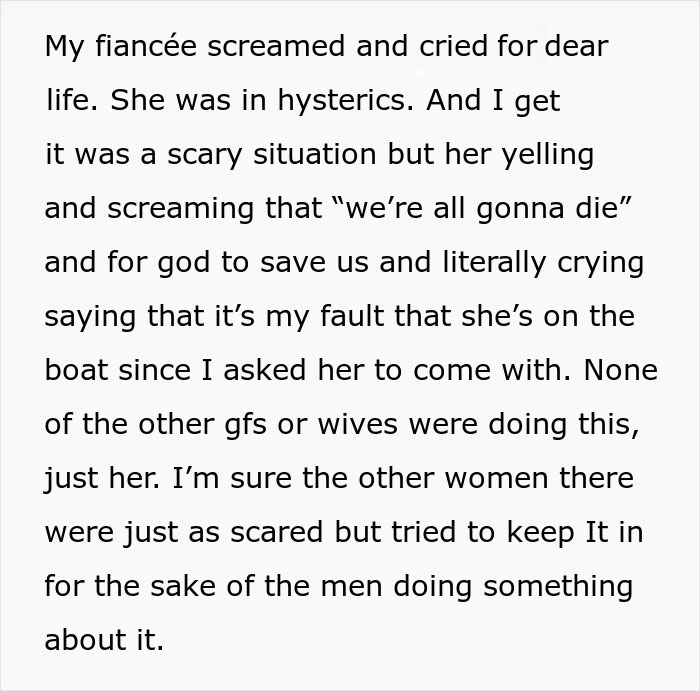
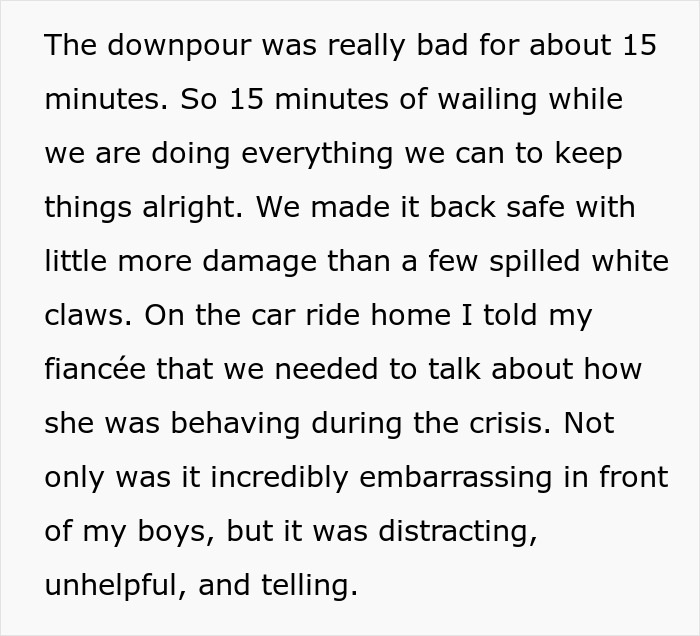
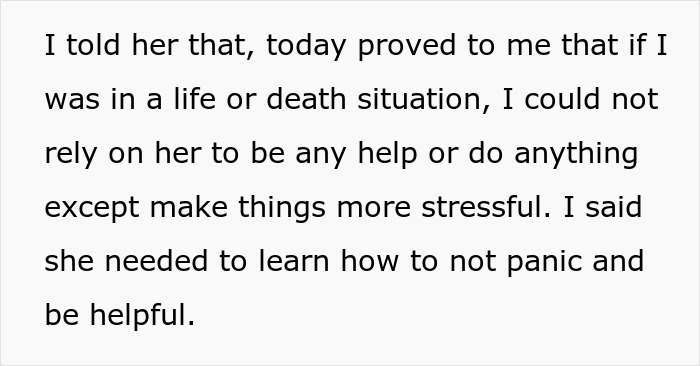



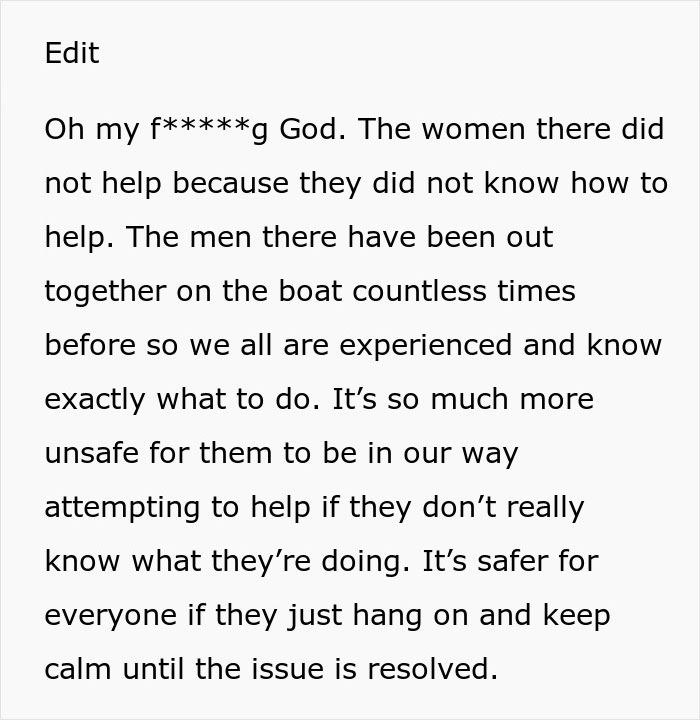
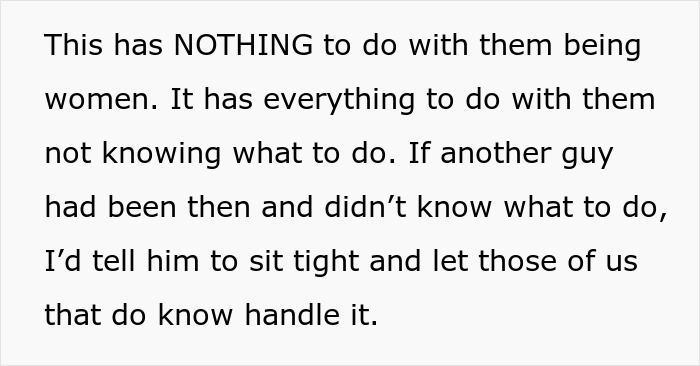
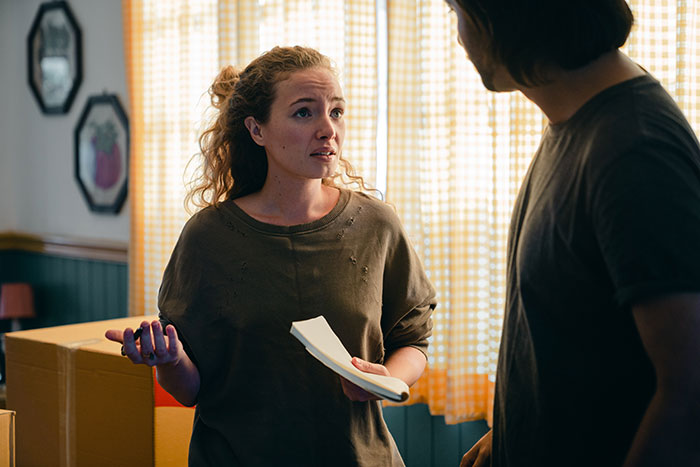


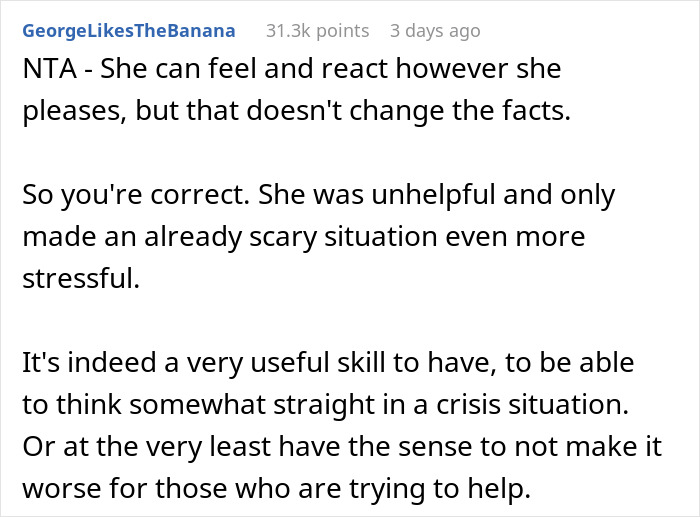
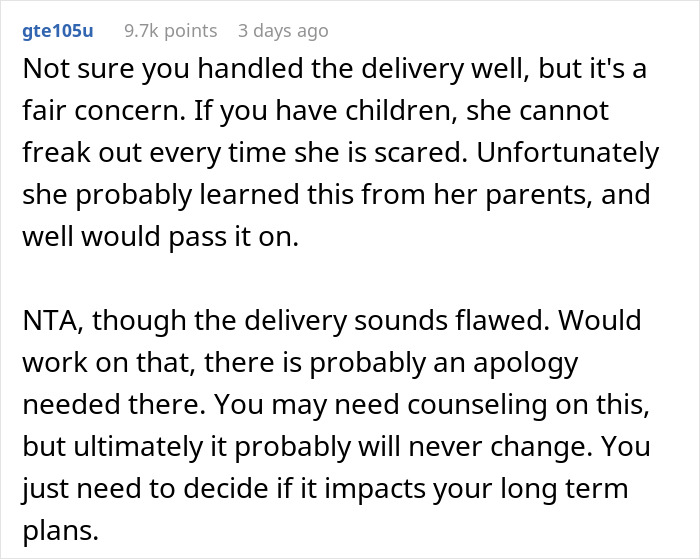
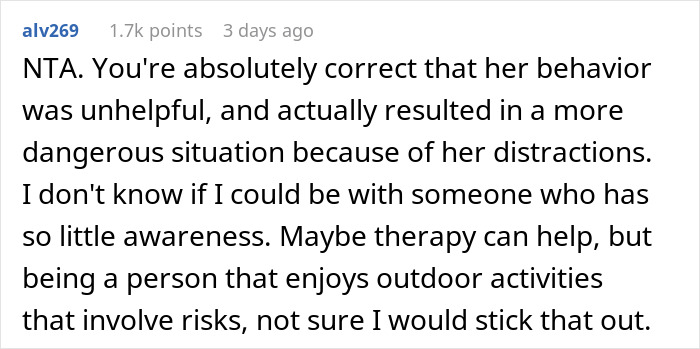
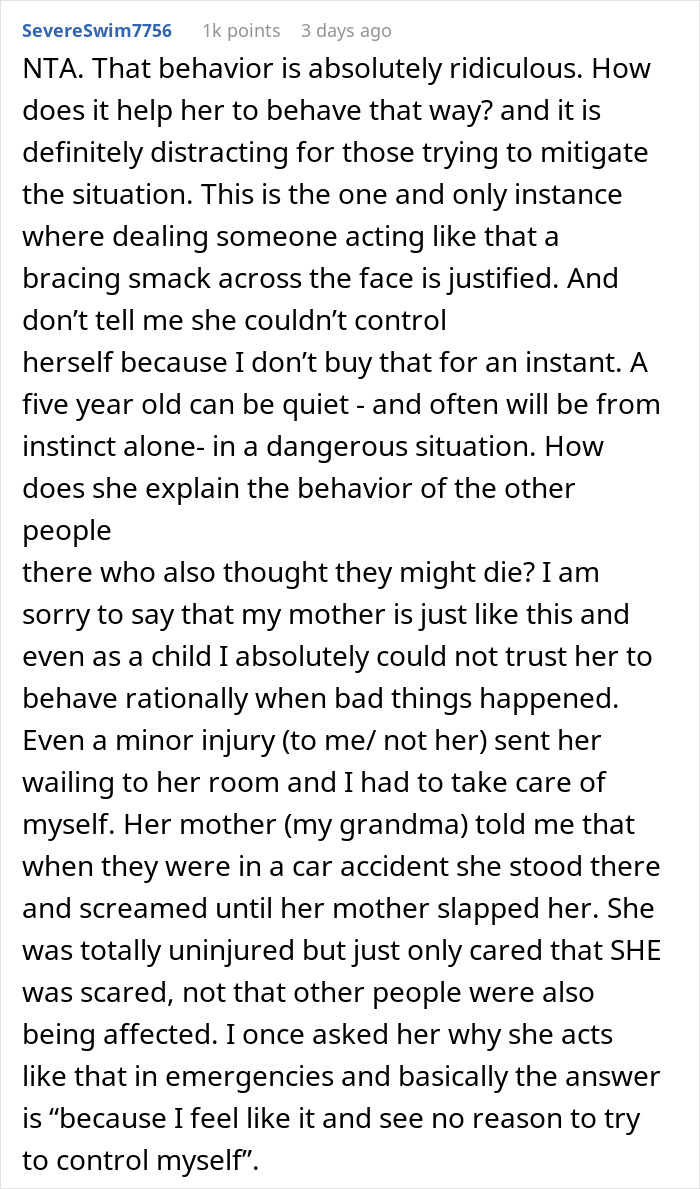
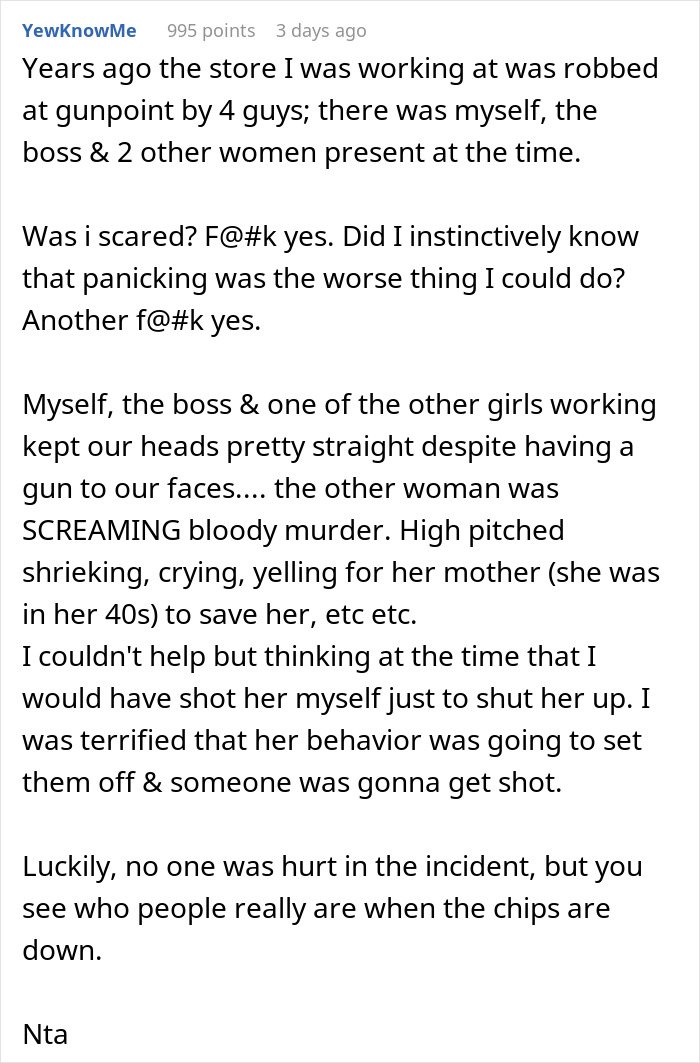
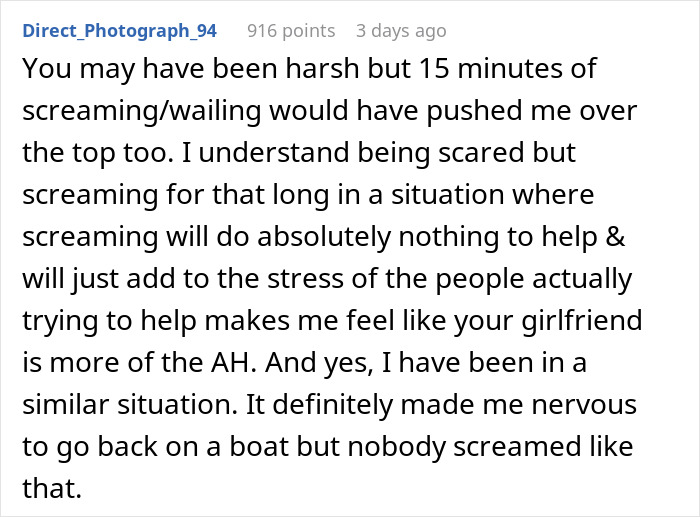
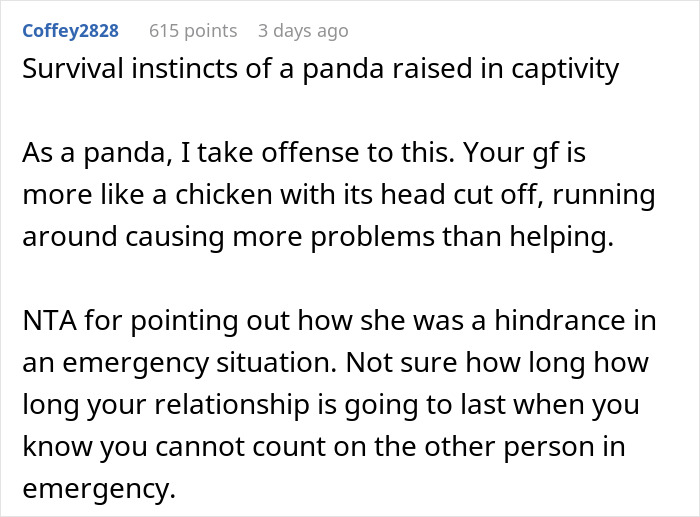


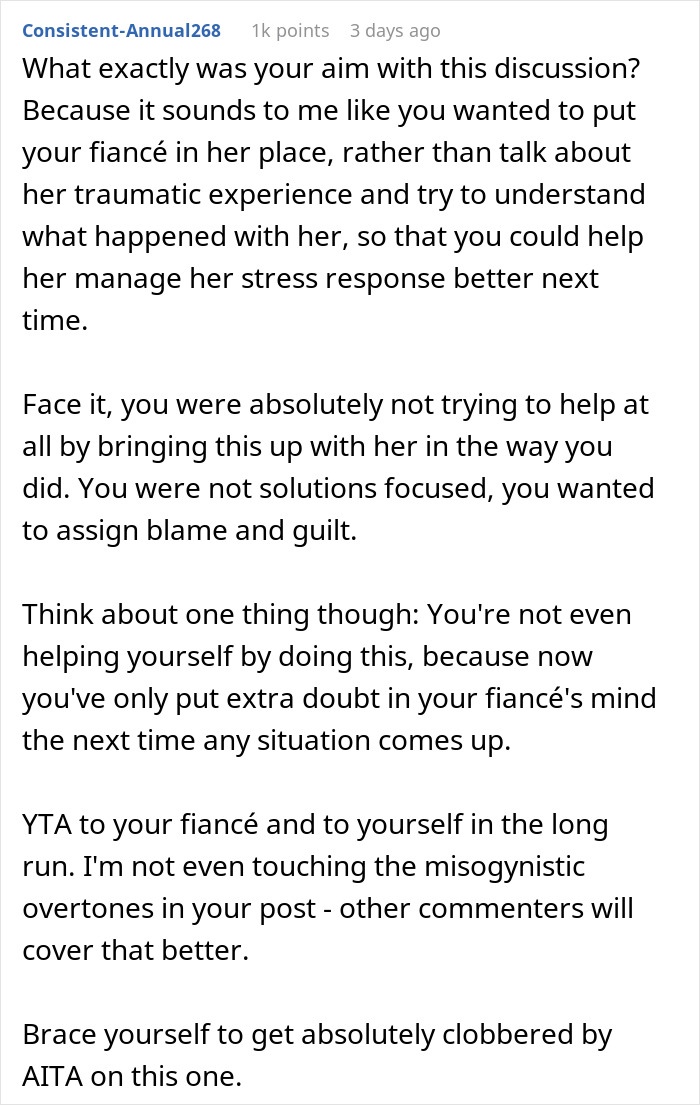
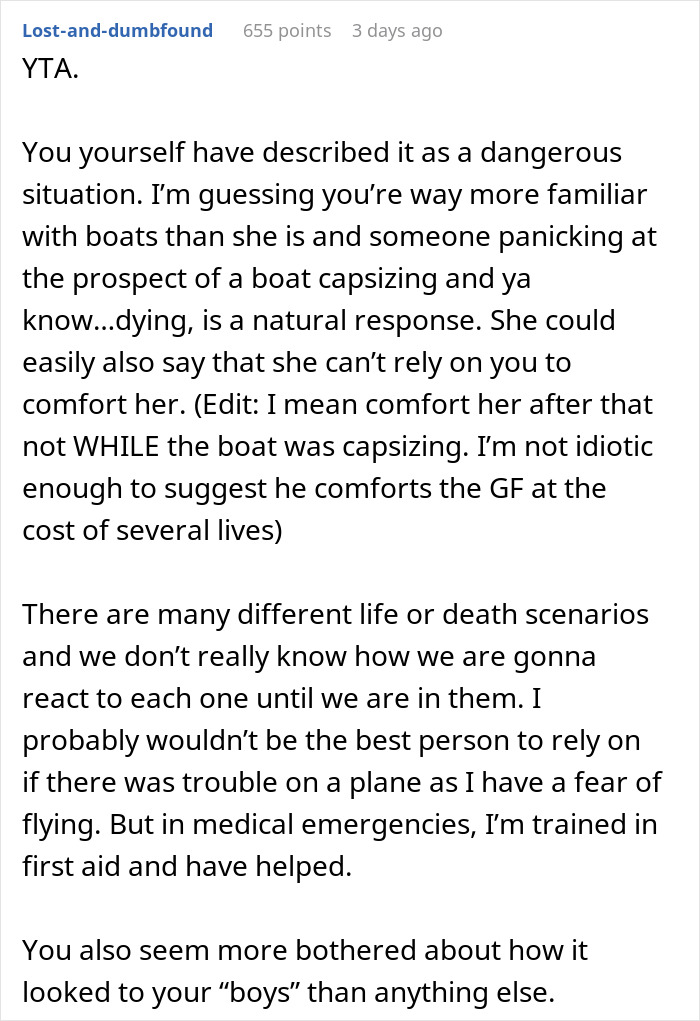
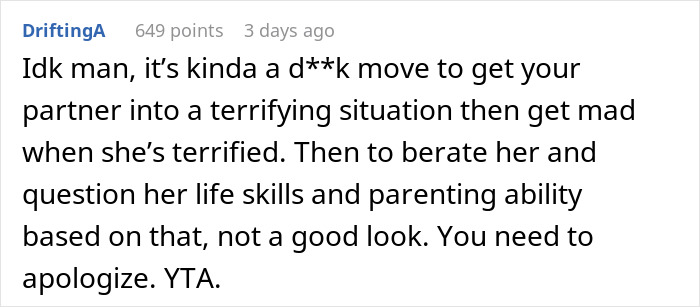
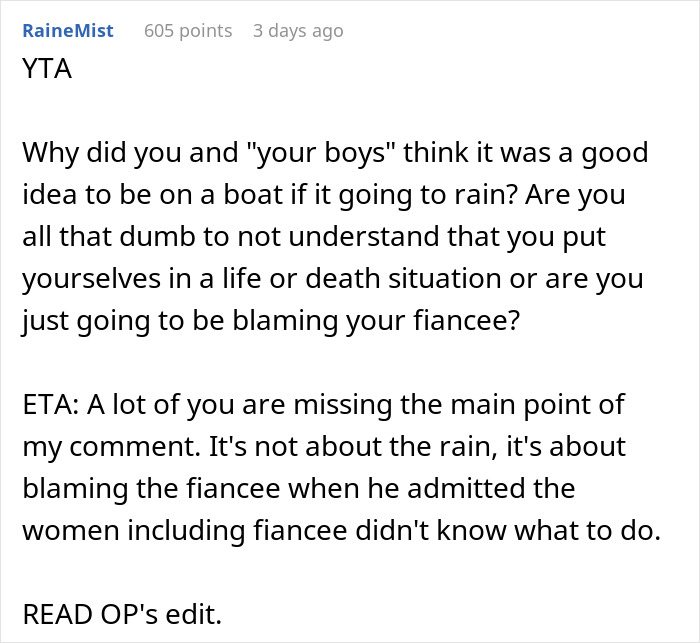




71
192